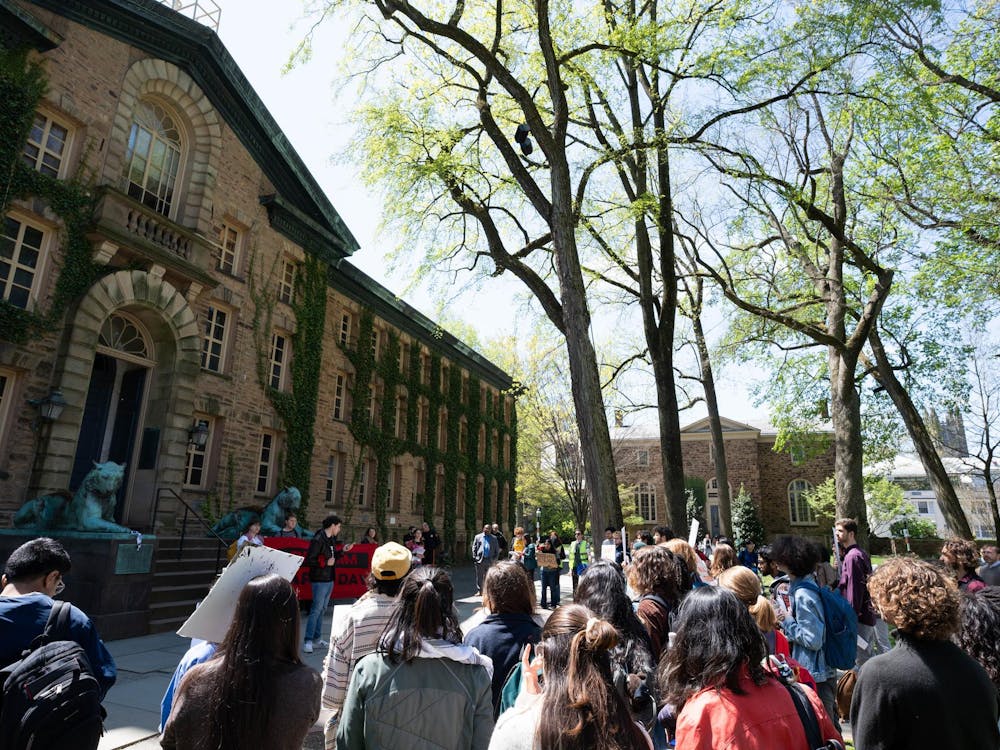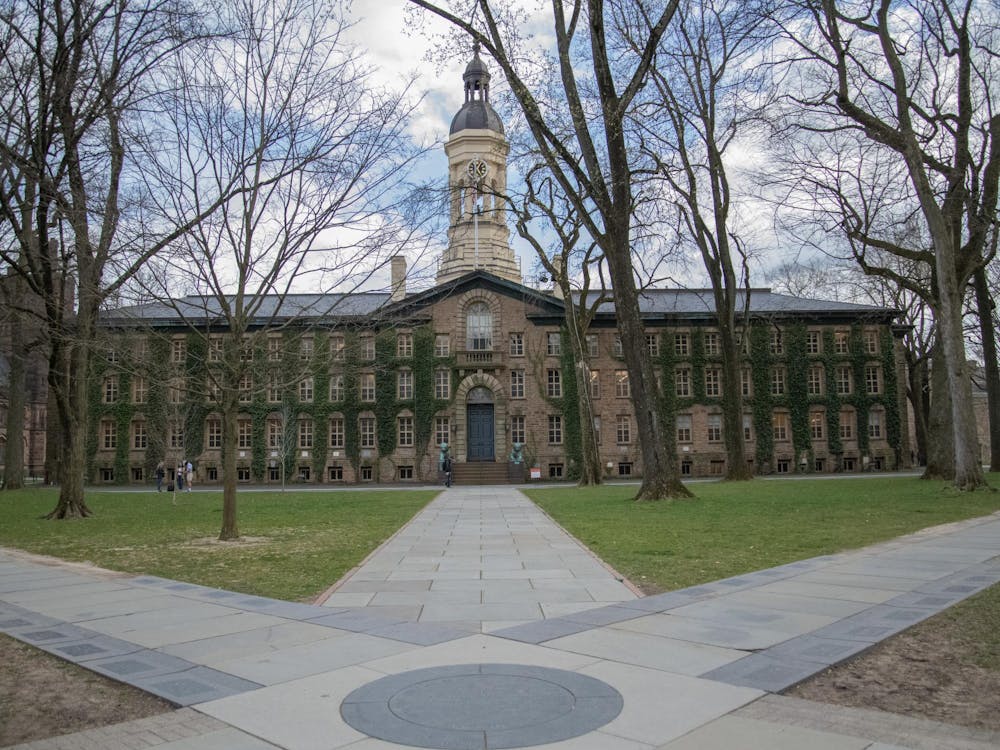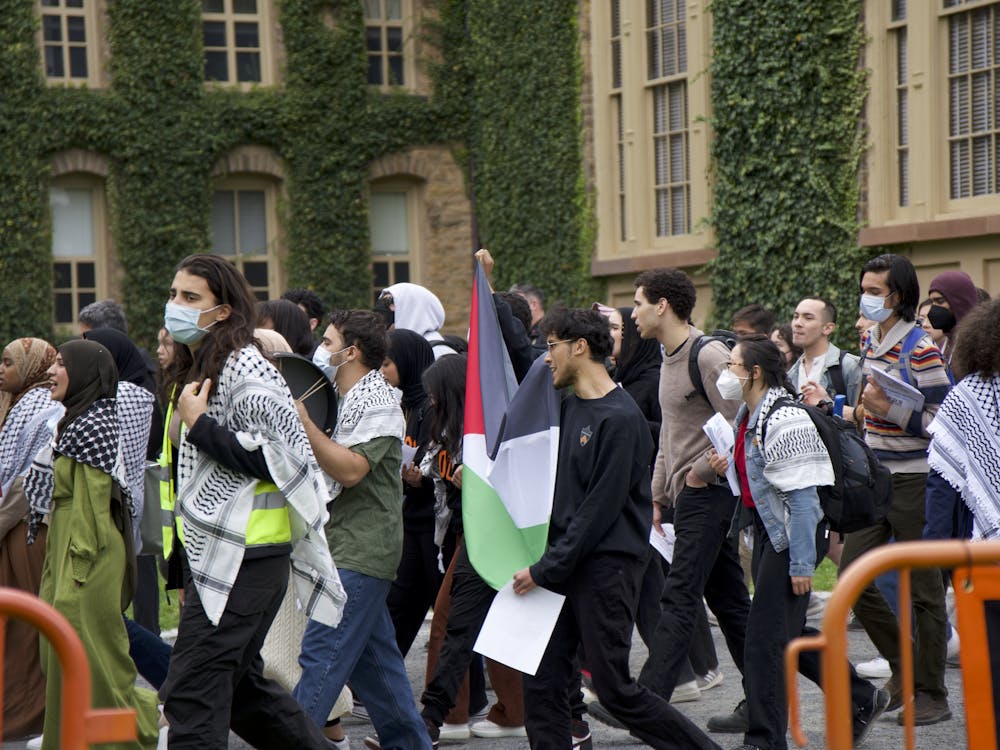The results of the “Hose Bicker” referendum are in, with the hosers (no offense to our neighbors in the north) losing 1120 to 868. Adding these numbers, we can see that only 1988 students out of 5391 undergraduates voted. Thus an overwhelming 63% of undergraduate students decided that the 45 seconds required to log on to Helios and click a few buttons was simply too high a cost for the right to make their voices heard.
I can’t help but hypothesize that a general lack of attention to these kinds of campus issues is at least partially to blame. However, another important factor is students’ lack of information about the arguments. This both discourages undergraduates from voting because they lack enough information to make an informed decision and may lead to votes that are cast without full consideration of both sides.
With the “Divest Princeton” petition having gotten the requisite number of signatures, it seems that we are poised to have another referendum, this one even more technical and fact-based than the last. Nonetheless, there has been no great drive on campus by students to research all the facts so that we all know exactly what we’re voting on.
Though these issues get debated between friends in dining halls or over late meal, such discussions offer only limited views. What we need is to expose the entire university to intelligent, well-thought-out, bipartisan discourse over such issues. That is why I am hereby calling on the University Student Government to institute a policy of hosting a public debate on any issue prior to having a referendum on it.
The kind of debate I am proposing is a formal, moderated one between two teams who have spent significant time researching facts and preparing arguments. Essentially, it should be quite similar to the debates Whig-Clio holds all the time. The differences will be in the relevancy of the topic, the timeliness (these debates should occur around a week or two before the referendum) and hopefully greater attendance.
For example, Whig-Clio previously hosted a divestment debate. However, the event occurred four months ago and, according to former Whig-Clio president Adam Tcharni ’15, only 30 to 35 people attended. To encourage higher attendance I think several steps should be taken. The debates should be held in a larger and more central area on campus, such as the Frist MPRs, to allow large-scale student access. Ideally the debates should be live-streamed as well to allow for an online audience. Finally, the debates should be well advertised on a broad range of forums at least a week prior to the event to further increase awareness.
Hosting such a debate has a number of substantial advantages. First, it helps to inform the student body about the issue. Few students are willing to put in the time to thoroughly research topics such as these. Hosting a debate between two well-informed parties would help to give students the information they need to make up their minds in a well-reasoned way. Second, seeing a debate on this issue would encourage students to have more and better debates about this issue among themselves, both by simply putting the topic into students’ minds (along with arguments for both sides) and by taking the stigma out of debating it. Many issues, such as divestment, can be highly controversial, and as a result many students will only discuss them with people they already know agree with them. By seeing people debate the issue, people will feel more comfortable debating it themselves, and thus one debate creates many more. Finally, this debate would itself act as advertisement for the referendum, encouraging a higher voter turnout. In short, a debate will give us more and better voters.
In thinking about this proposition, it is important to ask who would debate for each side. Naturally, those proposing the referendum should, if not themselves debating, be in charge of creating and organizing a team to argue for the referendum. Creating a team for the opposition is trickier, but students could be nominated by other students to be on the opposition. All students who get above a requisite number of nominations will come together to create and organize the opposition team. In such a short column, I can only offer suggestions and I would gladly welcome improvement, but the issue of debaters would have to be addressed.
I’m not going to pretend that what I’m proposing is free. Organizing an event like this takes time and effort and we all have a lot on our plates. However, these referendums have campus-wide, and in a few cases, global effects. It’s not enough to simply wing them.
I love debate and have always felt that it is the cornerstone of good representative government. The Athenians knew that when they started this whole mess we call democracy. Somehow along the many years, however, we seem to have largely forgotten that piece of wisdom. Let’s bring it back. The more we debate, the smarter our people become about the issues of the day, and the better decisions we end up making about the direction we want our university to go in. USG, give us a debate.
Colter Smith is a sophomore fromBronxville, NY. He can be reached at crsmith@princeton.edu.









